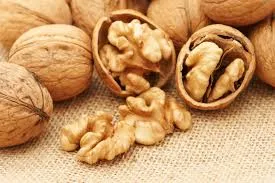Dietary fat tends to have a bad reputation. Despite what you may have heard, eating fat doesn’t make you fat — as long as you eat it in moderation. In fact, fat is an essential part of a balanced diet.
Your body needs dietary fat for many
different biological processes. Not getting enough fat can make it harder for
your body to function the way it should and can lead to health issues.
In this article, we’ll look at signs that shows you may not be getting enough
fat — in particular, the healthy kind — from the foods you eat. We’ll also
explore the role fat plays in your body and how to go about creating a balanced
diet.
Why do you need fat in your diet?
Your body needs dietary fat for many
biological processes. You wouldn’t be able to live a healthy life without it.
Here are some of the essential roles dietary fat plays in your body:
- Helps you absorb vitamins. Vitamins A, D, E, and K are
fat-soluble, meaning your body can absorb them only when you consume them
along with fat. A lack of fat in your diet can cause deficiencies in these
vitamins, which can lead to a variety of health issues.
- Supports cell growth. Fat
provides structure to the outer membrane of every cell in your body.
- Supports brain and eye health. The
omega-3 fatty acids eicosapentaenoic acid
(EPA) and docosahexaenoic acid (DHA) help
maintain the health of your brain, central nervous system, and retinas.
Your body doesn’t make these fatty acids — you can only get them from your
diet.
- Wound healing. Essential
fatty acids play a key role in wound healing and blood clotting.
- Hormone production. Your
body needs dietary fat in order to make specific hormones, including the
sex hormones testosterone and estrogen.
- Source of energy. Each
gram of fat you consume provides you with about 9 calories of energy. For
comparison, each gram of carbohydrate or protein yields only 4 calories of
energy.
Dietary fats can be divided into four
categories: trans fats, saturated fats, monounsaturated fats, and
polyunsaturated fats.
Trans fats
Trans fats, which are found primarily
in partially hydrogenated oils, are the least healthy type of fat for your
body. Hydrogenated oils are often used to improve the taste and shelf life of
processed foods.
Your body doesn’t need trans fats.
Eating a lot of this type of fat can raise your risk of heart disease, stroke, and type 2 diabetes.
Trans fats may be found in:
- processed
foods (such as microwave popcorn, frozen pizzas, and crackers)
- baked
goods (such as store-bought pie crusts, cakes, and cookies)
- fried
foods (such as doughnuts and french fries)
- margarine
and vegetable shortening
To find out if a food product contains
trans fats, you can read the ingredient list on the package. If partially
hydrogenated oil is listed as an ingredient, it’s best to avoid the product.
Saturated fats
Saturated fats are
found mostly in animal products such as meat, eggs, and dairy products. These
fats tend to be solid at room temperature.
The USDA recommends getting less
than 10 percent of
your daily calories from saturated fats. Current researchTrusted Source suggests that replacing saturated fat with
unsaturated fat is associated with a lower risk of heart disease.
Monounsaturated fats
According to the American
Heart Association, monounsaturated fats can help reduce the LDL
(“bad”) cholesterol in your blood. This can reduce your risk of heart disease
and stroke.
Unlike saturated fats, monounsaturated
fats are liquid at room temperature. Foods that are a good source of this type
of fat include:
- plant-based
oils (such as olive oil, canola oil, sesame oil, and safflower oil)
- nuts
(such as almonds, peanuts, walnuts, and cashews)
- nut
butters (such as peanut butter and almond butter)
- avocados
Polyunsaturated fats
Your body can’t make polyunsaturated
fats — that’s why you need to get them from the food you eat. These fats are
also known as “essential fats.”
Omega-3 fatty acids are
a specific type of polyunsaturated fat that can help reduce your risk of heart
disease, protect you against irregular heart rate, and help lower your blood
pressure.
You can find omega-3 fatty acids in
the following foods:
- fatty
fish (such as salmon, mackerel, herring, and sardines)
- oysters
- flax
seeds
- chia
seeds
- walnuts
To help maintain good health, most of
the fats you eat should be monounsaturated or polyunsaturated.
How to tell if
you’re not getting enough fat in your diet
Dietary fat deficiency is rare in
healthy people who eat a balanced, nutritious diet. However, some conditions
can put you at risk for fat deficiency, such as:
- eating disorders
- large bowel resection (colectomy)
- inflammatory bowel disease
- cystic fibrosis
- pancreatic insufficiency
- an
extremely low fat diet
If you’re not getting enough dietary
fat, some biological processes in your body may not work as well.
Let’s take a closer look at some of the signs that you’re not getting enough fat in your diet… TO BE CONTINUED TOMORROW


















0 Comments:
Post a Comment